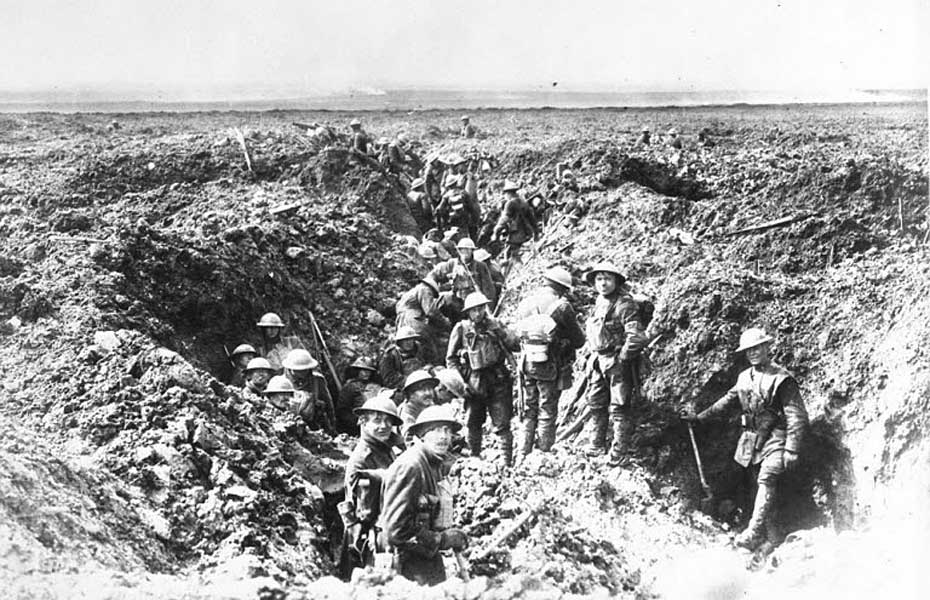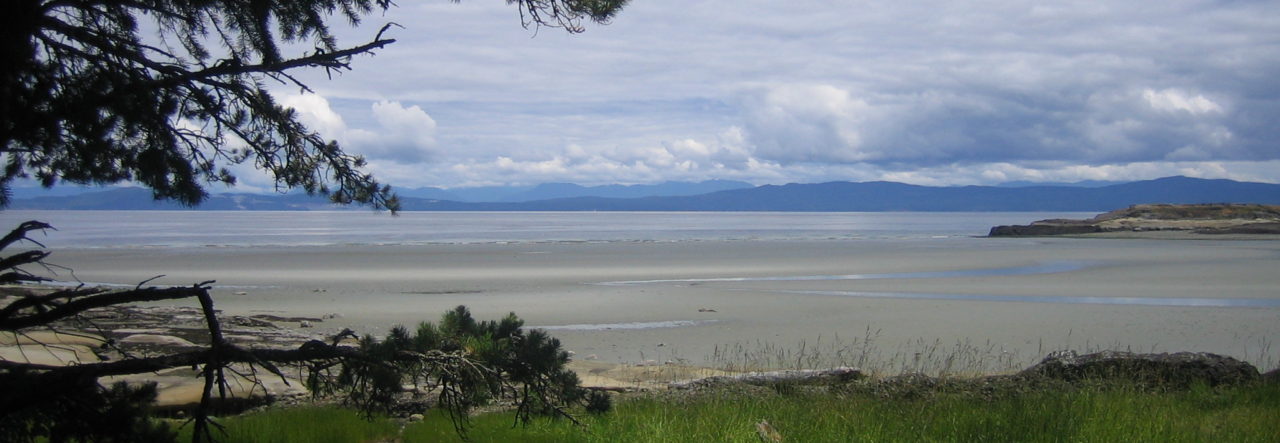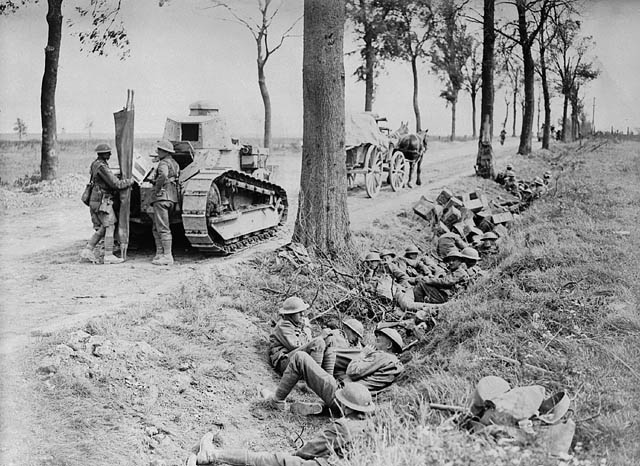
Today, 103 years ago, my grandfather went over the top four times at Vimy Ridge.
Continue reading “Vimy Ridge”

Today, 103 years ago, my grandfather went over the top four times at Vimy Ridge.
Continue reading “Vimy Ridge”Even though I have not posted in a while, I have been thinking long and hard about what to post for Remembrance Day.
What I wrote last year still resonates but I didn’t feel like rehashing what I had said and so was waiting for some inspiration.
Yesterday at the cenotaph, I saw something wonderful. A 94 year old Merchant Navy -turned- Royal Canadian Navy veteran stood from his chair with a mischievous look in his eye, and escorted by his grandchildren, went over to greet an elderly lady who had just laid a wreath for the women of Britain. He leaned over his cane and kissed her, smiling about how he was happy to see his girlfriend as he called her. Everyone thought it was great. A moment of happiness in amongst a sombre ceremony that showed that those who went before were so truly, wonderfully human. It makes their sacrifice even more laudable, as these were not all paragons, but rather ordinary people who answered the call and managed to do extraordinary things.
When the older veterans finally surrender the watch and join their fallen comrades, I will to go to the cenotaph and think not only of the horrors endured for us but of the smiling man, old only in body who, after winning his kiss, sat down in the sunlight with a tear in his eye.

It is Remembrance Day here in Canada, called Armistice Day elsewhere, but in many nations it is the day we remember the price that was paid to secure the lives that we live today.
I have been thinking for some time about what to post here. There are great articles I could link to. Articles about why people enlisted, articles about the price the family members back home also paid. All of these resonate with me, as a serving member who has deployed, with many members of my family serving in uniform and in the merchant marine in the last century. There were many times my own father went away, or I myself left my family to drive through minefields on the other side of the world.
Rather than add my voice to a chorus of others with the same resonance, I will strike out solo here with a small story. A short story about a ghost.
My family’s house on Vancouver Island (where my parents still live) is old for the West Coast, being built just after the First World War in 1919. It is small but well built, with massive timbers that are noteworthy now but would have been common then.
One day last year, my young niece claimed she spoke to a little girl she had seen in the basement a few times. The girl, she understood, had died. When my niece asked about it, the girl had replied that she had died in the sea nearby while swimming at the beach. She wasn’t scared or hurt, and seemed only lonely. She had lived on the street just after our family’s house was built. My niece, in the manner of children, wasn’t scared, and relayed the information to her mother, my sister.
I took it upon myself to see if any young girls in the area had died around 1919 from drowning. I went through hundreds of obituaries. I never found her, but she led me to something nonetheless.
About a quarter of the obituaries were servicemen. Some died of influenza or wounds (especially the effects of gas) years after they left the trenches. Quite a few drowned after excessive drinking, and this seemed to only happen to veterans. Some, very experienced with service in the Boer War and the First World War, were accidently killed while cleaning their rifles. Few were ruled suicides, with brave brothers in arms openly defying the social norms to publicly name themselves pallbearers.
Page after page after page of men killing themselves years after the bells announcing the end of war rang out. We may talk of PTSD and suicides and veteran mental health issues now, as we should. These men, a hundred years ago, had no help, no recognition of the cost they paid. They came home, but clearly many never came back whole.
I wonder at the bells of the Armistice, that rang out around the world. The celebration in the streets. The erection of monuments to the fallen, and all the while broken men died alone and forgotten, wading out into the cold ocean or ending it with a plausible accident to ease the pain on their families. Too many people blinded by platitudes and photo shoots to see the suffering at their feet.
So after the poppies are put away for another year, and the memorial wreaths wither, think of the after effects of war. The suffering never ends at the signing of treaties or the end of active service. The cost of conflict is paid for years longer than publicly recognized. Be mindful of those around you, of their suffering and challenges.
We will remember them.
_________________________
By Kipling
I went into a public ‘ouse to get a pint o’ beer,
The publican ‘e up an’ sez, ” We serve no red-coats here.”
The girls be’ind the bar they laughed an’ giggled fit to die,
I outs into the street again an’ to myself sez I:
O it’s Tommy this, an’ Tommy that, an’ ” Tommy, go away ” ;
But it’s ” Thank you, Mister Atkins,” when the band begins to play
The band begins to play, my boys, the band begins to play,
O it’s ” Thank you, Mister Atkins,” when the band begins to play.
I went into a theatre as sober as could be,
They gave a drunk civilian room, but ‘adn’t none for me;
They sent me to the gallery or round the music-‘alls,
But when it comes to fightin’, Lord! they’ll shove me in the stalls!
For it’s Tommy this, an’ Tommy that, an’ ” Tommy, wait outside “;
But it’s ” Special train for Atkins ” when the trooper’s on the tide
The troopship’s on the tide, my boys, the troopship’s on the tide,
O it’s ” Special train for Atkins ” when the trooper’s on the tide.
Yes, makin’ mock o’ uniforms that guard you while you sleep
Is cheaper than them uniforms, an’ they’re starvation cheap.
An’ hustlin’ drunken soldiers when they’re goin’ large a bit
Is five times better business than paradin’ in full kit.
Then it’s Tommy this, an’ Tommy that, an` Tommy, ‘ow’s yer soul? “
But it’s ” Thin red line of ‘eroes ” when the drums begin to roll
The drums begin to roll, my boys, the drums begin to roll,
O it’s ” Thin red line of ‘eroes, ” when the drums begin to roll.
We aren’t no thin red ‘eroes, nor we aren’t no blackguards too,
But single men in barricks, most remarkable like you;
An’ if sometimes our conduck isn’t all your fancy paints,
Why, single men in barricks don’t grow into plaster saints;
While it’s Tommy this, an’ Tommy that, an` Tommy, fall be’ind,”
But it’s ” Please to walk in front, sir,” when there’s trouble in the wind
There’s trouble in the wind, my boys, there’s trouble in the wind,
O it’s ” Please to walk in front, sir,” when there’s trouble in the wind.
You talk o’ better food for us, an’ schools, an’ fires, an’ all:
We’ll wait for extry rations if you treat us rational.
Don’t mess about the cook-room slops, but prove it to our face
The Widow’s Uniform is not the soldier-man’s disgrace.
For it’s Tommy this, an’ Tommy that, an` Chuck him out, the brute! “
But it’s ” Saviour of ‘is country ” when the guns begin to shoot;
An’ it’s Tommy this, an’ Tommy that, an’ anything you please;
An ‘Tommy ain’t a bloomin’ fool – you bet that Tommy sees!

Today marks the 100th anniversary of the Second Battle of Amiens, and beginning of the Hundred Day Offensive that closed out the First World War.
At Amiens today, 100,000 Canadians went forward and the following men won VCs:
As with the way of things, only Cpl Good survived his actions that day, a hundred years ago. The rest died in the field, some taking a second or third machine gun pit or gun position before finally falling. The heroism shown on the battlefield was the culmination of much training, preparation, and pride. The Canadian Corps with 4 divisions had been fighting together for some time, and they would do amazing things before the Armistice.
From Amiens to the end of the war, the Canadian Corps was responsible for destroying 25% of the German Army. Not 25% of the German Army that was defeated or destroyed during that period, but 25% of the entire German Army in the field. 47 divisions were destroyed or put to flight by the 4 CEF divisions in 100 days, a record that my Grandfather was a part of, (and he would remain in the field until 1919 to see the last of the Germans demobbed). No other Allied formation defeated more Germans in the Hundred Days, pound for pound, than the Canucks. The Germans saw the Canadians as the shock troops of the Allies. Contingents of Canadian troops were even moved around to other areas of the front to convince the Germans that the attack would come there next, such was our reputation.
It was not without cost, and the last 100 days would cost Canada 20% of the total casualties we saw over the entire war. In total 45, 835 casualties were incurred throughout the offensive. Many of infantry regiments still honour the Battle of Amiens, as their progenitors were there. 16th CEF is Victoria’s own Canadian Scottish Regiment (the CScot R). The 22nd CEF is the famous Van Doos (R22R). And so on.
Though we play at battle, the cost of war is terribly high, and those of us who have worn the uniform, or who have family who served, or serve, are aware of the tradition of those who have gone before, and the bravery they showed. We should live our lives more fully, with more immediacy as these peaceable times were not gained without suffering, and loss.
So smile in the sun, and in the shade! Play with your friends and families, and keep doing what you enjoy.
Life is precious.